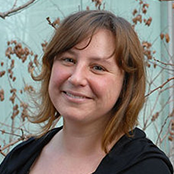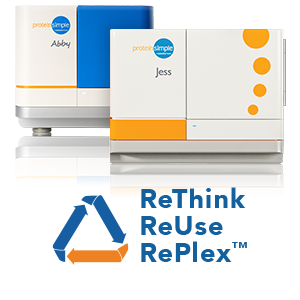Contact Us | 1-888-607-9692
Stripping & reprobing traditional Western blots is often attempted to gain more information from a single blot, however, it can lead to unpredictable protein losses and high signal variability which makes obtaining quantitative data nearly impossible. The RePlex™ feature in Simple Western™ is an optimized and automated two-step immunoassay that enables quantitative, multiplexed protein expression data without loss in signal intensities and without affecting epitope binding.
In this webinar, Dr. Lorrain will describe how RePlex assays on Simple Western have been utilized at the Protein Analysis Facility at the University of Lausanne to advance three specific, multiplexed bioassays. Specifically, she will describe the design & optimization of an assay where two antibodies from the same species but requiring different detection channels were utilized as well as studies comparing several common housekeeping proteins with total protein normalization. In sum, the results of these studies provide guidance on how to carefully design RePlex experiments, especially when dealing with strong chemiluminescence signals in the first step and highlight the flexibility in assay design, multiplexing ability, and accurate quantitation afforded by RePlex sequential immunoassays on Simple Western.
Learn more about how RePlex provides the ability to:
 |
Séverine Lorrain, PhD Senior Technician, Protein Analysis Facility University of Lausanne |
 |
Chris Heger, PhD Director of Applications Science Analytical Solutions Division of Bio-Techne |

© 2021 Bio-Techne. All rights reserved.
Terms and conditions of Sale | Privacy Policy | Email Preferences